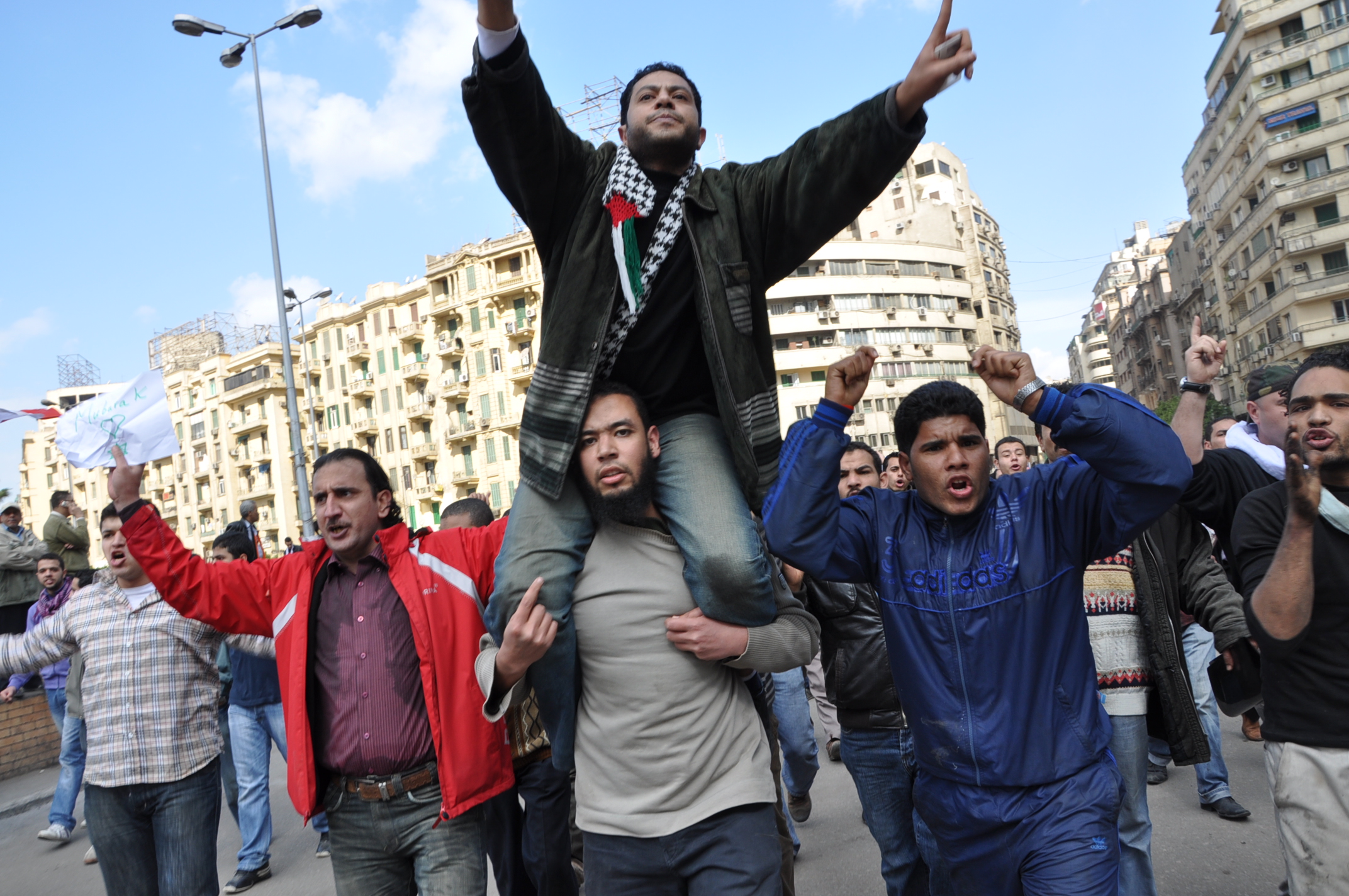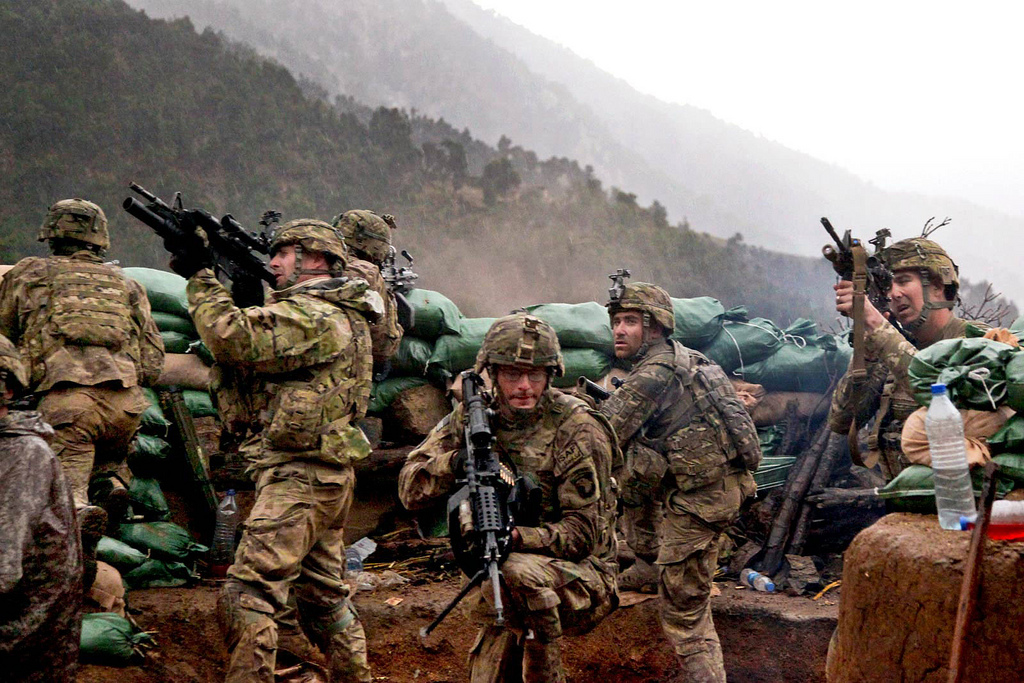Three months ago, the political conflict in Egypt appeared on people’s radars. The social and political turmoil that erupted in January 2011 was unexpected to say the least, and took its rightful place on the front page of every major media outlet around the world. Hearts went out to the struggling nation. Every outcry was recorded, trends were monitored and the entire world was on the edge of its seat, watching a revolution unfold before their eyes.

However, what was going on before this breaking point? What was the state of Egypt before this took place? What caused them to succeed in their 2011 protests? For Lillie Paquette, an independent filmmaker, the story that had become the world’s talking point had been hers for the last fifteen months. An entire year before Egyptian protesters appeared on the global stage, Paquette was there, documenting the situation without knowing what was to come. She captured footage at a time when no one else thought to, thus encapsulating a human story of the rumbles of Egypt’s discontent. Her film, We Are Egypt, retells the stories and events of people who fought for political representation before the Tahrir Square revolution even began.
Paquette, a Northeastern alumna, studied Political Science and International Affairs. She traveled to Egypt for the first time through the Dialogue of Civilizations program in Cairo. She began her professional career in Washington, DC, working at a non-profit organization. After several years, Paquette wondered if she could make a greater impact. With her passion for Middle Eastern and North African studies, she went back to school and received her master’s in Global Studies at the Fletcher School, where she concentrated on issues of equality and democratization in the Middle East.
Paquette decided to reconcile her passion for Egypt, and close the gap between academic and activist. Setting out to raise awareness about the long-standing internal political conflict in Egypt, Paquette returned to the country to document the situation through film. What started out as an unclear project turned into a year-long journey, following Egypt’s activists, citizens, protesters, and government officials. Paquette witnessed a complex political and social situation and a frustrated yearning for political representation among the Egyptian people. The political repression Paquette bore witness to was all the more hopeless due to decades of US fiscal and military support for the long-entrenched Mubarak dictatorship. Paquette realized that she could use her film to communicate with those at home about Egyptian’s political experiences and the symptoms of American support for the regime.
As of now, the film is still in its beginning stages of production. The rough cut screened at Northeastern University on March 8th was an early draft of what will undergo a post-production phase as requests for Paquette’s priceless footage pile in. The film offers an in-depth look at the past fifteen months of political and social unrest in Egypt, presented in such a way that American citizens and policymakers can understand the complexities of the political climate in Egypt. Paquette seeks to bring her unique vision of Egypt to the eyes of Americans across the country.
Paquette gives a perspective that cannot be illustrated by many others because she so diligently gathered information on the ground before the protests caught the mass media’s eye. The film first takes the audience through a bit of history; discussing the Mubarak dictatorship and the United States’ support for the regime. It then goes into interviews with opposition leaders, representing a wide array of opposition parties. Paquette even engages in dialogue with representatives from the Mubarak governments’ ruling National Democratic Party (NDP). Paquette asks those in her film about their feelings on the Mubarak dictatorship and the actions taken by the United States. In now uncanny shots, she asks them about their predictions for the future of their country. The opinions vary on the topic of foreign policy and the role the United States. One Egyptian woman says she wants to see more aggressively pro-democratic policy from the US, merging rhetoric with reality, while another wishes the US would stop intervening.
Egypt’s November 2010 Parliamentary elections were greatly anticipated by every one of Paquette’s interviewees. It is accepted widely that past elections were rigged, and candidates from opposition parties were often cheated out of a victory through manipulated ballots or rendered powerless in meaningless government positions to give the guise of democratic representation. Public resentment toward the government had risen in the previous few years. People mobilized against the Mubarak regime after vicious government crackdowns stifled the youth-led “6th of April” protest movement in 2009. Further, the death of Khaled Said, a young man ruthlessly murdered by two police officers while in police custody in the summer of 2010, further provoked public outrage over years of unchecked police brutality.
With such a discouraging history, it seems almost unfathomable that opposition parties retained hope for yet another election. From the beginning of the film the audience can see that Egyptian activists and opposition groups have never stopped fighting. This is what is most unique about the film. After watching the story unfold, it is not difficult to believe Egypt had the spirit to lead a revolution. The political culture and spirit Lillie Paquette discovered in Egypt was demonstrated to the entire world this January and February of 2011 with the uprising and ultimate victory of the Egyptian protesters. The world witnessed the Egyptian struggle, watching with inspiration as protestors cheered when Mubarak stepped down.
This is what makes Lillie Paquette’s story invaluable. It is a story that Lillie Paquette has the rare ability to tell and one that must be shown to the world. Paquette was there before the revolution, during the revolution, and continues to document the situation after the fall of Mubarak. She saw the Egyptians fight one rigged election, saw them hurt during anti-government protests, and watched the public resentment for its central government climb higher and higher. However, through all of this she also saw their unwavering optimism. She saw Egyptians continue to have faith that their efforts would someday yield victory. The piece manages to accurately portray the spirit and vitality of the Egyptian people, and gives an explanation for the success of the revolution
One of the greatest lines of the film, which encapsulates the inimitability of the film, comes from the great Egyptian actor Omar Sharif, who says, “Egyptians will hope forever, they will go on hoping. Even if half the population dies they will continue to hope.” The struggle for democratization in Egypt has only just begun and as a filmmaker, Lillie Paquette plans to go back to Egypt to continue her project just as the Egyptian people continue theirs.



